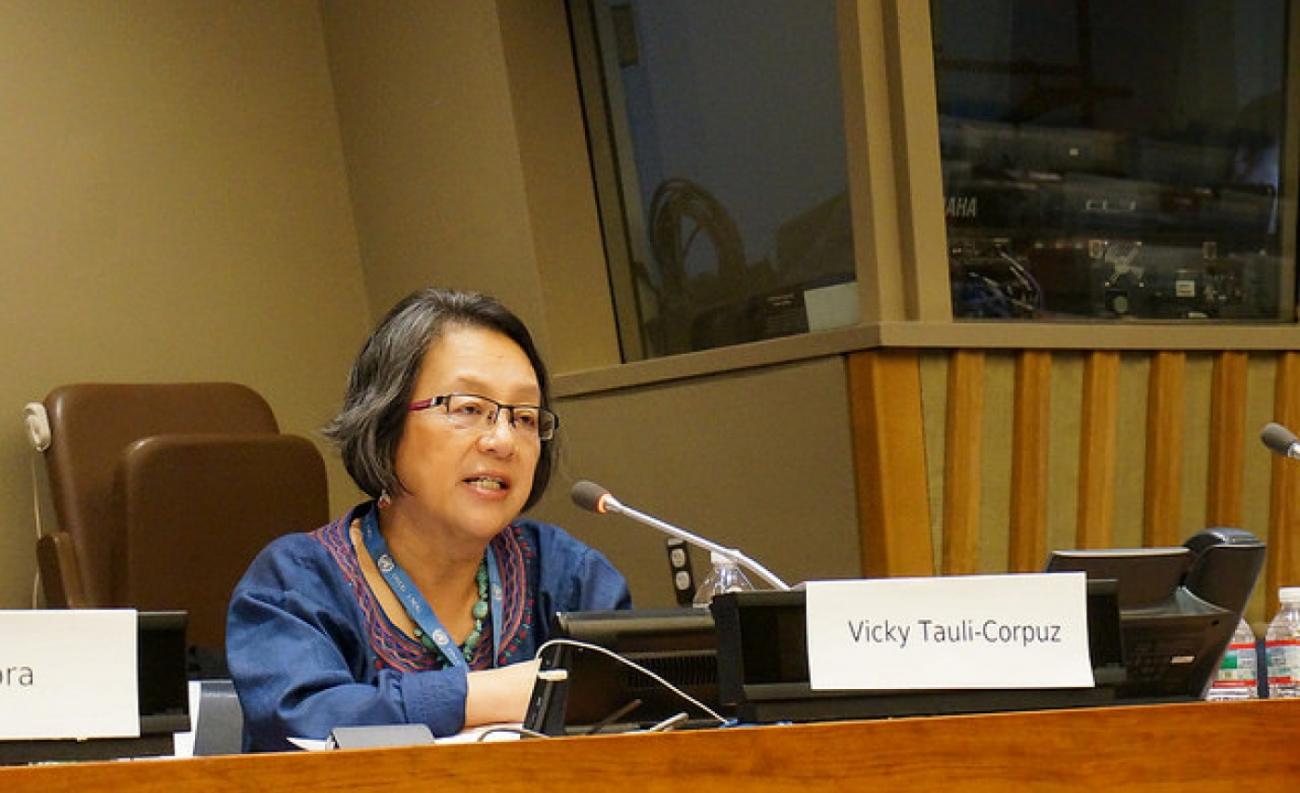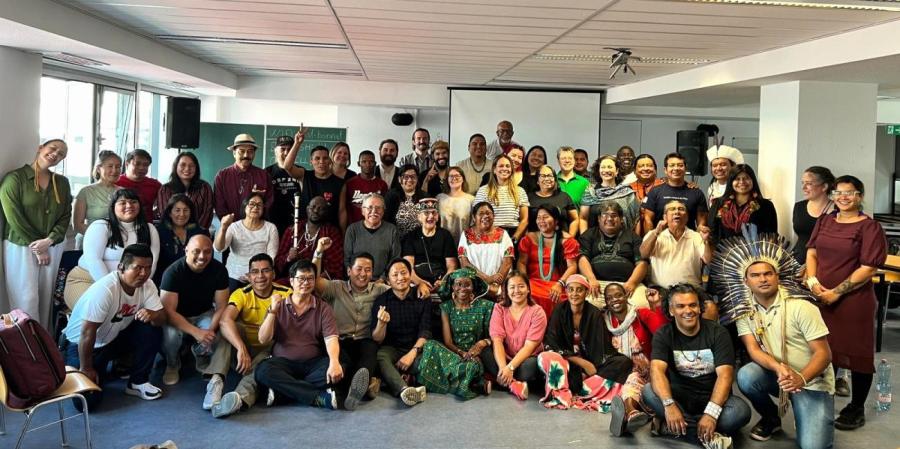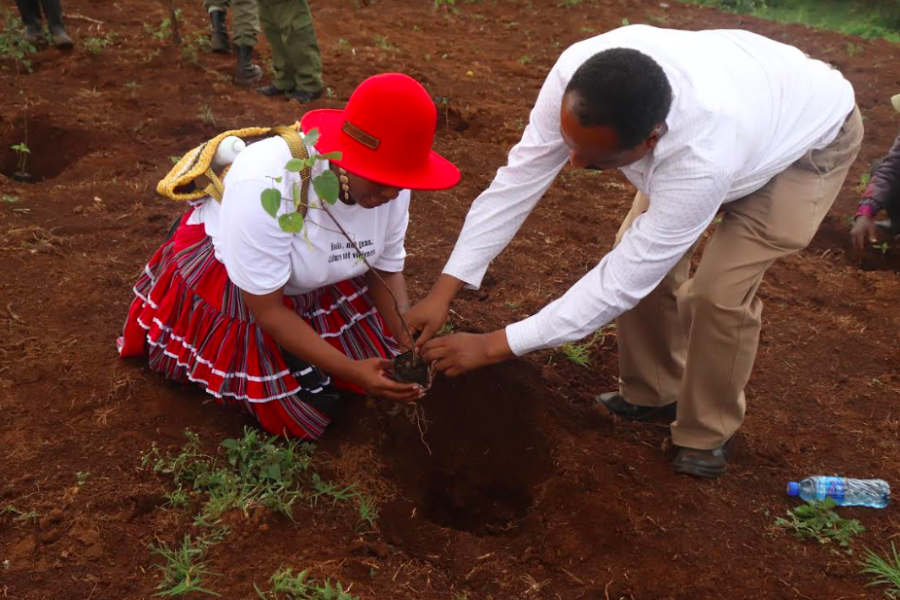
By Kim Maida
As a Special Rapporteur on the Rights of Indigenous Peoples for the United Nations, Victoria Tauli-Corpuz has traveled the world meeting with Indigenous communities, seeing first-hand whether Indigenous rights are respected, protected, and fulfilled. On September 20th, 2017, during her fourth annual report to the Human Rights Council, Tauli-Corpuz shared her on the ground experiences to illustrate what areas need urgent attention regarding the rights of Indigenous Peoples.
With 2017 marking the tenth anniversary of the adoption of the UN Declaration on the Rights of Indigenous Peoples (UNDRIP), Tauli-Corpuz states that her main pre-occupation is “closing the gap between the recognition of Indigenous Peoples' rights at the international and national levels and improvement of the actual implementation on the ground,” showing how operationalization of the Declaration is still a major concern 10 years after the Declaration’s adoption. “An important element to translate rights into practice is the adoption of adequate public policies,” says Tauli-Corpuz, “Public policies need to be based on participation and should address the underlying causes of poverty and marginalization.” A major obstacle to effective public policy is the denial of self-determination, this is why “policy design should be done in consultation with Indigenous Peoples in order to jointly assess their needs, identify priorities and develop strategic action plans with goals and time frames for implementation.” She notes that “lack of adequate data” has been a major shortcoming in her country visits as it makes it difficult for States to measure the outcomes of their initiatives.
Since her last report to the Human Rights Council in 2016, Tauli-Corpuz has released a thematic study on climate change and its disproportionate impact on Indigenous Peoples along with country visits to Australia and the United States. In her report on climate change, Tauli-Corpuz shares that “Indigenous Peoples are among those who have least contributed to the problem of climate change yet are the ones suffering from its worst impacts. They are disproportionately vulnerable to climate change because many of them depend on ecosystems that are particularly prone to the effects of climate change and extreme weather events such as floods, droughts, heat waves, wildfires and cyclones.” The areas most widely impacted by climate change are small islands, high altitude areas, humid tropics, coastal regions, deserts and polar areas, all of which are home to the world’s Indigenous Peoples. Tauli-Corpuz highlights that Indigenous Peoples have an important role to play in dealing with climate change “due to their close relationship with the environment, Indigenous Peoples are uniquely positioned to adapt to climate change….they play a fundamental role in the conservation of biological diversity, protection of forests and other natural resources, and their traditional knowledge of the environment can substantively enrich scientific knowledge and adaptation activities when taking climate change-related actions.” She calls for States to ensure that climate change finances reach Indigenous Peoples to fund programs based on their traditional ecological knowledge and sustainable methods.
During her most recent country visit to Australia, Tauli-Corpuz was shocked by the “overall negative trends despite Australia's commitment to advancing the Declaration and the rights of Indigenous Peoples.” “Government policies have failed to reach targets in the key areas of health, education and employment and have led to a growing number of Aboriginal and Torres Strait Islanders being jailed, and have resulted in an escalation of children being removed from their homes,” says Tauli-Corpuz. At the same time, she was impressed and inspired by “the strength of spirit and commitment of Aboriginal and Torres Strait Islanders to develop innovative measures to support their own communities.”
While visiting the United States, she focused on energy development projects and the use of Free, Prior and Informed Consent. Tauli-Corpuz shared that “many Indigenous Peoples in the United States perceive a general lack of consideration of the future impacts on their lands in approving extractive industry projects in particular. In the context of the Dakota Access Pipeline, the potentially affected Tribes were denied access to information and excluded from consultations at the planning stage of the project.” The Standing Rock Sioux Tribe are joined by many other Indigenous communities facing the same problems in the United States. She found that the criminalization of protests by Indigenous communities was a major problem, for this reason her upcoming report for 2018 will focus on this topic.
Moving forward Tauli-Corpuz will also push countries in Africa and Asia to invite her for country visits in order to investigate the status of Indigenous Peoples in those areas.
Tauli-Corpuz’s complete statement to the Human Rights Council can be found here and the report on her country visit to the United States can be found here.



